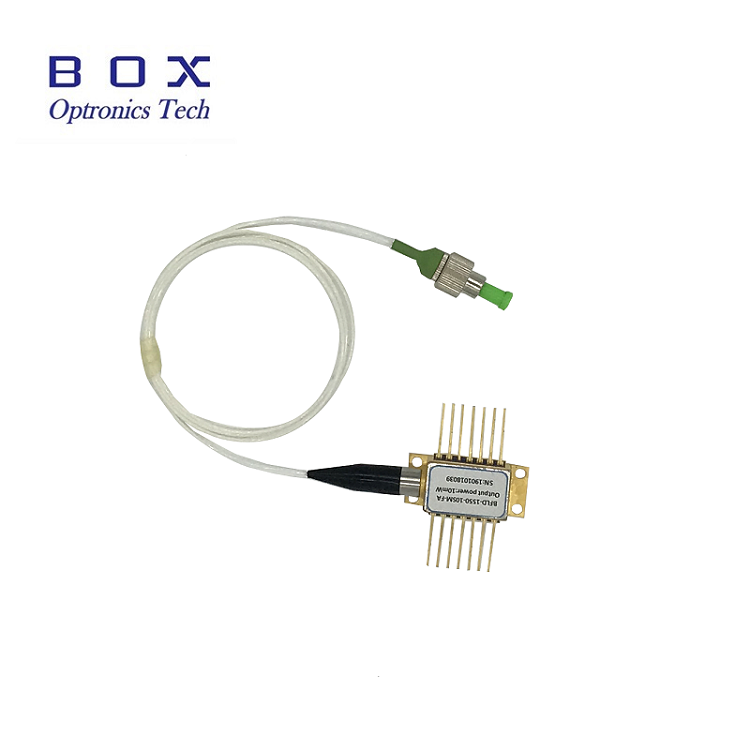What is a fiber coupled laser?
2023-10-13
A fiber-coupled laser, often referred to simply as a "fiber laser," is a type of laser system that is designed to output laser light directly into an optical fiber. This integration of the laser source and the optical fiber makes it possible to efficiently and precisely deliver laser light to a specific location or application. Fiber-coupled lasers have a variety of uses in science, industry, medicine, and telecommunications. Here are some key characteristics and applications of fiber-coupled lasers:

Characteristics of Fiber-Coupled Lasers:
1. Optical Fiber Interface: The primary feature of a fiber-coupled laser is its compatibility with optical fibers. The laser source is typically connected directly to the fiber, allowing for efficient light transmission.
2. High Efficiency: Fiber-coupled lasers are known for their high optical efficiency, meaning that a large portion of the laser power generated by the source can be coupled into the fiber without significant losses.
3. Precise Beam Delivery: These lasers are ideal for applications requiring precise control over the delivery of laser light to a specific target or location. The optical fiber acts as a flexible and accurate conduit.
4. Fiber Types: Fiber-coupled lasers can work with both single-mode and multi-mode optical fibers, depending on the application's requirements.
5. Wavelength Range: Fiber-coupled lasers can cover a wide range of wavelengths, from ultraviolet (UV) to infrared (IR), depending on the type of laser source used.
Applications of Fiber-Coupled Lasers:
1. Telecommunications: Fiber-coupled lasers are used in optical communication systems to transmit data over long distances through optical fibers. They play a crucial role in fiber-optic communication networks.
2. Medical and Biomedical: Fiber-coupled lasers are employed in various medical and biomedical applications, such as laser surgery, dermatology, ophthalmology (for eye surgery), and fluorescence microscopy.
3. Materials Processing: In industrial settings, fiber-coupled lasers are used for cutting, welding, marking, and engraving of materials like metals, plastics, and ceramics. They provide precision and flexibility in manufacturing processes.
4. Scientific Research: Researchers use fiber-coupled lasers in various scientific experiments, including spectroscopy, laser cooling and trapping of atoms, and quantum optics experiments.
5. Laser Sensing and Metrology: Fiber-coupled lasers are used in sensing applications, such as LIDAR (Light Detection and Ranging) systems for remote sensing and metrology applications that require high precision.
6. Defense and Aerospace: Fiber-coupled lasers have applications in defense and aerospace for laser rangefinders, target designation, and directed energy weapons.
7. Biotechnology: In biotechnology, fiber-coupled lasers are used for DNA sequencing, flow cytometry, and other analytical techniques.
8. Fiber Lasers: Fiber-coupled lasers can also refer to a specific type of laser called a "fiber laser." Fiber lasers use optical fibers as the gain medium, and they are known for their high power and efficiency, making them valuable for materials processing and cutting applications.
Fiber-coupled lasers offer the advantage of precise and flexible laser light delivery, making them versatile tools in a wide range of industries and applications. Their ability to work with optical fibers enables efficient and reliable laser systems for various purposes.


